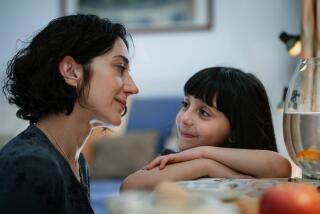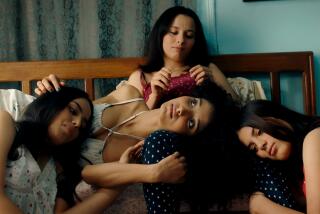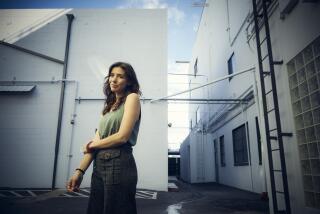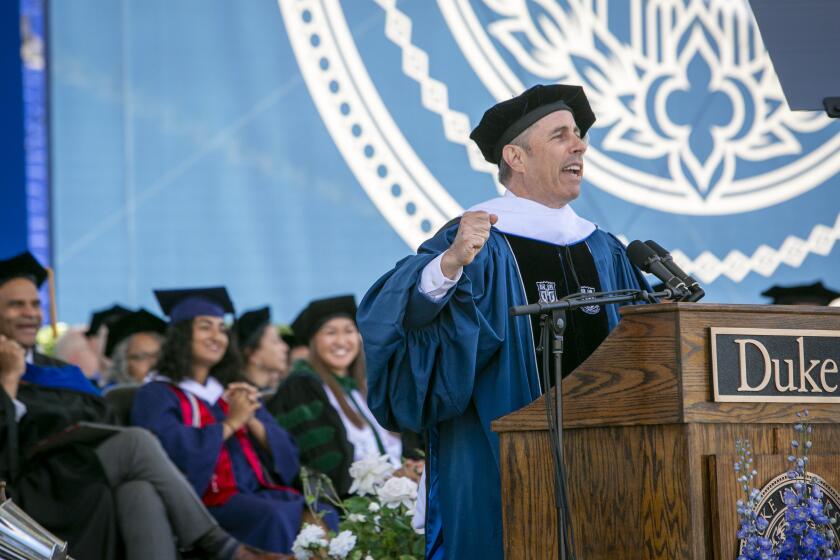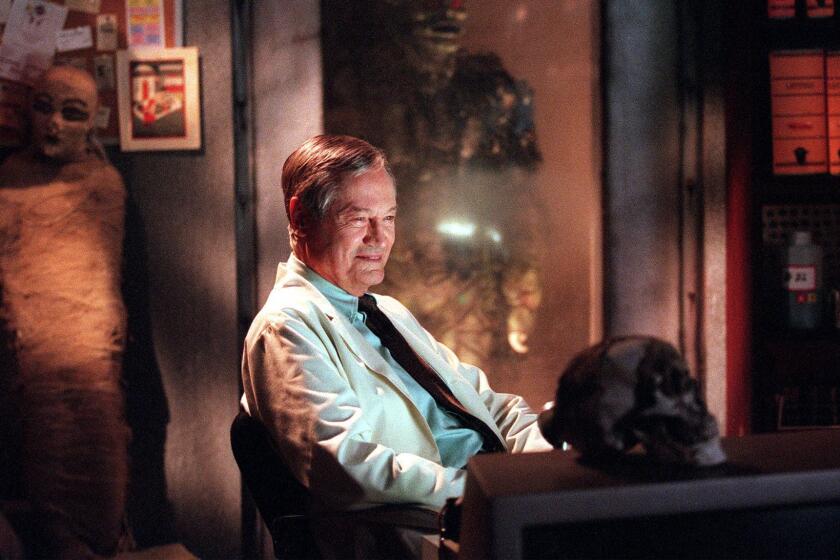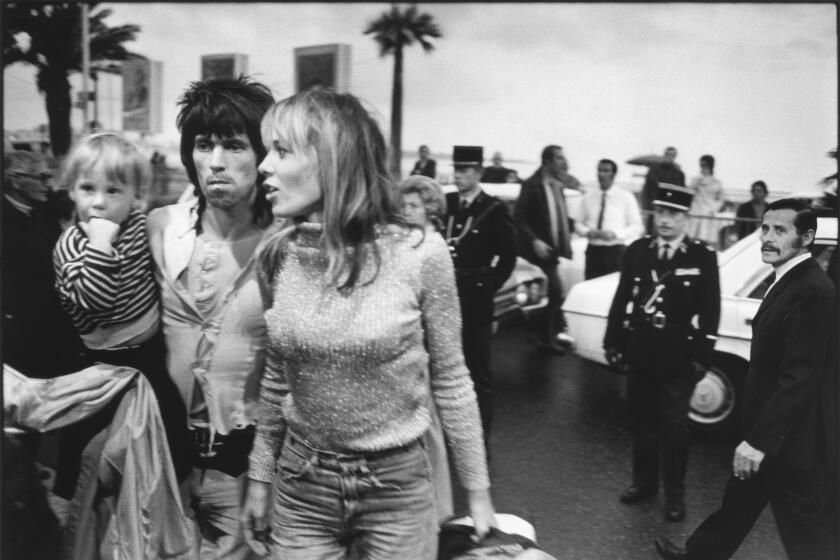Review: Subtle Moroccan drama ‘Adam’ turns on bond between women

With their faces showered in warm light, the two women fronting Moroccan director Maryam Touzani’s latest drama, “Adam,” are consistently filmed in delicate close-ups. Each gesture and hard-earned blemish relays more about them than dialogue could. Gentle in her gaze, Touzani spends quiet moments with the co-leads as they stare in wonderment or nostalgia at their changing bodies. Notwithstanding its male title, the inherent hardship of womanhood in a still patriarchal world plagues the movie’s plot.
Pregnant in the city of Casablanca, Samia (Nisrin Erradi) plans to give her child up for adoption as soon as it’s born. Motherhood out of wedlock weighs on the young woman. Searching for work, she meets rigid baker Abla (Lubna Azabal) and her vivacious young daughter Warda (Douae Belkhaouda). Skilled with her hands, Samia makes rziza, a laborious string bread, to win over her host who is silently drowning in unresolved loss.
An unspoken pact of companionship is born between them. Neither has to walk their respective thorny paths alone any longer. Together, Erradi and Azabal ground their sisterly relationship in poignant scenes that denote the characters’ self-less mutual support. There are no ulterior motives and that genuineness comes across. In playing Samia, with her kind eyes and measured ebullience, Erradi tolerates greater anguish in the presence of an unwanted newborn.
Though not quite a food movie, “Adam” takes certain turns into the sensorial, sometimes awkwardly, with the tactility of kneading dough and the vibrations of music that resurrect Abla from her emotional slumber. Touzani maintains an economical and naturalistic aesthetic while keeping some facts ambiguous. She never leans heavily on Abla’s romantic prospects or Samia’s regretful past. It’s how they truly see each other, tattered hearts and all, that matters.
None of their struggles are unprecedented or revelatory — actually the opposite — and there are no great turning points (other than the expected birth), yet the act of sparing each other judgment feels like a formidable balm. “Few things really belong to us,” says Samia about women’s place in society in response to Abla’s confession of how men had dictated her grieving process. Caring for each others’ wounds, even if briefly, perhaps made the load of such a harsh truth more bearable and fighting back more feasible. Subtly moving, “Adam” is a beautiful expression of untainted sorority.
‘Adam’
Not Rated
In Arabic with English subtitles
Running time: 1 hour, 38 minutes
Playing: Starts March 5, Laemmle Virtual Cinemas; and on PVOD
More to Read
Only good movies
Get the Indie Focus newsletter, Mark Olsen's weekly guide to the world of cinema.
You may occasionally receive promotional content from the Los Angeles Times.
